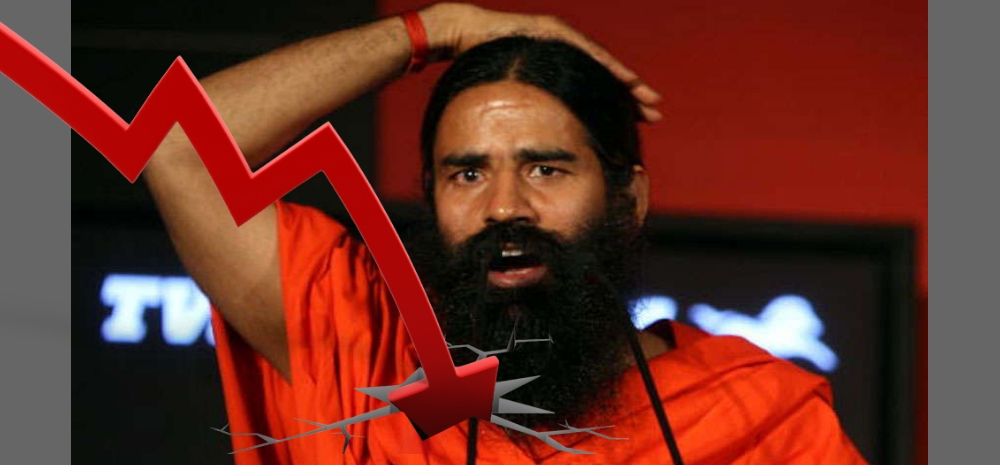Urban India Rejects Patanjali As Sales Decline; Rural Sales Growth Decrease By 66%

Patanjali has managed to give its competitors a good run for their money, but not anymore. Things aren’t looking up for the popular desi brand, as per a recent finding that shows that the sales of products by Patanjali have gone down in Indian cities and villages too.
The report discusses the rate at which the sales of Patanjali have been declining, in spite of the increase in the demand for natural products. Also, the company has recently bought out other popular brands, such as Ruchi Soya, Nutrela, Sunrich, however, that hasn’t proved to be of much help after all.
For details about the rate at which the sales of Patanjali are going down, keep reading!
Patanjali’s Sales Decrease Despite a Growth in Market
This study has been made by Kantar Worldpanel which is one of the world’s leading companies that collects and publishes its studies about insights and trends of various brands that dominate multiple markets that range from FMCG, personal care and fashion to technology, electronics, and even petrol.
The study says that Patanjali Ayurved’s sales in volume terms have declined in urban areas, and in the rural areas, the growth has reduced by a third in villages. This fall is despite a considerable increase in the overall market for natural products.
The urban sales of Patanjali declined by 2.7% in the year which ended at the end of April 2019. Whereas, rural sales grew by 15.7%. Let’s compare last year’s numbers: the sales of Patanjali in urban areas had grown by 21.1% and in the rural areas, the growth was by a good 45.2%.
The overall market for natural products has increased by 3.5% in urban India, which was the same as last year. But the rural market has increased by 5%, which was 4.4% last year.
Here’s Why Patanjali’s Sale Collapsed
There was a time when Patanjali was one of the most demanded brands for natural products and commodities in the nation. The company led by Baba Ramdev has had major brands break into a cold sweat by the sudden success.
Indian households inclined sharply towards buying products made natural or with herbal components rather than the chemical ones, and Patanjali was one of the few ones which provided completely authentic products.
However, seeing the company’s boost in market value, Patanjali’s competitors also entered the market of herbal and natural products, which marked the beginning of the downfall of Patanjali.
K Ramakrishnan, managing director at Kantar Worldpanel said, “The natural segment is driven not just by core natural brands, but also ones introducing some natural ingredients in their products. It has helped incrementally build the parent brand, which may not be in the natural space at all.”

Comments are closed, but trackbacks and pingbacks are open.